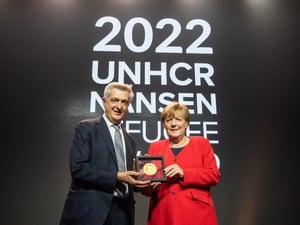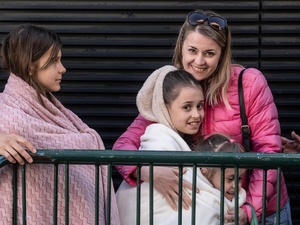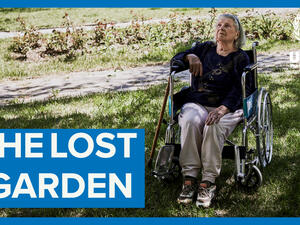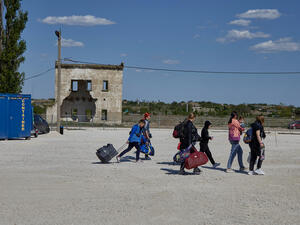Arrivals by sea in Greece nearing 400,000, implementation of relocation and increased reception capacity still urgently needed
Arrivals by sea in Greece nearing 400,000, implementation of relocation and increased reception capacity still urgently needed
Although windy autumn weather affected sea crossings from Turkey over the past few days, refugee and migrant arrivals in Greece continue to climb and are expected to reach the 400,000 mark shortly. Greece remains by far the largest single entry point for new sea arrivals in the Mediterranean, followed by Italy with 131,000 arrivals so far in 2015.
With the new figures from Greece, the total number of refugees and migrants crossing the Mediterranean this year stands now close to the 530,000 mark. In September, 168,000 people crossed the Mediterranean, the highest monthly figure ever recorded and almost five times the number in September 2014.
The continuing high rate of arrivals underlines the need for a fast implementation of Europe's relocation programme, jointly with the establishment of robust facilities to receive, assist, register and screen all people arriving by sea. These are steps needed for stabilizing the crisis.
As of this morning (Friday), a total of 396,500 people have entered Greece by sea since January 1, more than 153,000 of them in September. The nine-month 2015 total compares to 43,500 such arrivals in Greece in all of 2014. Ninety-seven percent are from the world's top 10 refugee-producing countries, led by Syria (70 percent), Afghanistan (18 percent) and Iraq (4 percent).
There was a noticeable drop in sea arrivals this week, along with the change in the weather. On Sept. 25, for example, there were some 6,600 arrivals. The next day, it dropped to around 2,200. From an average of around 5,000 arrivals per day recently, it has fallen to some 3,300 over the past six days with just 1,500 yesterday. Nevertheless, any improvement in the weather is likely to bring another surge in sea arrivals.
The current cooler, windy weather has made the crossing from Turkey to Greece even more perilous. Yesterday (Thursday), there were at least two rescue operations in waters off Lesvos. On Wednesday, there were four separate rescue operations on Lesvos in which 283 people were recovered. Unfortunately, a woman and a young boy died, bringing the total toll of dead and missing in Greek waters this year to at least 102. In all, nearly 3,000 people have died or gone missing this year crossing the Mediterranean Sea.
The pace and scale of the movement into Greece continues to put enormous pressure on the government and many communities. While authorities have worked to improve reception and registration facilities and operations in the islands, bottlenecks still occur. In spite of these efforts the registration process should be enhanced and be fully consistent with applicable EU norms for all arrivals. Despite daily ferry departures carrying between 3,000 and 6,000 refugees and migrants from the islands to Athens, new arrivals continue and island ports can still be crowded with some 10-14,000 people on any given day awaiting transfer.
UNHCR is concerned that the lack of reception capacity in Greece could seriously jeopardize the relocation programme agreed upon by the European Council, as eligible refugees have nowhere to stay while awaiting relocation. If this is not immediately addressed secondary movements to neighbouring countries are likely to continue.
For its part, UNHCR continues to boost its capacity in Greece and currently has some 120 staff across the country. Our efforts are focused on supporting and working with local authorities, NGOs and the central government to improve the response; supporting the registration process; providing information to refugees; identifying and referring people with specific needs; and providing support to help improve reception conditions. UNHCR is also delivering basic humanitarian assistance.
- For more information on this topic, please contact:
- In Athens, Katarina Kitidi on mobile +30 693 7115656
- In Athens, Stella Nanou on mobile +30 693 79 34 515
- In Geneva, William Spindler on mobile +41 79 217 3011









